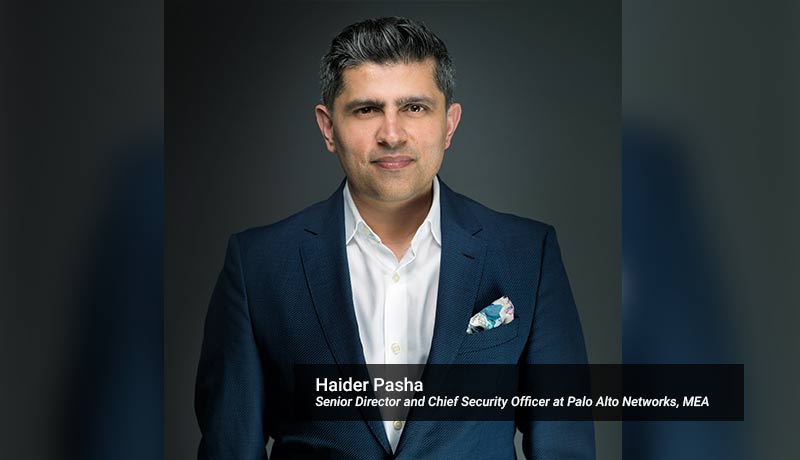
Safer Internet Day is celebrated globally in February each year to endorse the safe and positive use of digital technology. On this occasion, TECHx spoke with Haider Pasha, Chief Security Officer at Palo Alto Networks, Middle East and Africa (MEA) to learn about current cybersecurity threats for businesses, cybersecurity in remote working – and risks on social media.
Haider: The year 2020 coupled with the global pandemic altered many aspects of life for organizations and individuals in unprecedented ways, including the way we work, live, and do business in the Middle East. With so many working from home, it is important to take many precautions such as securing home networks – as there are around 20 and 50 things connecting to home Wi-Fi hubs such as devices, doorbells, TVs, and a plethora of family phones, tablets, wearables, and computers.
In the upcoming year, technological advances including the growth of 5G networks, cloud, edge computing, and touchless interfaces will give rise to new types of security vulnerabilities and threats. With the right cybersecurity strategies in place, IT heads in the Middle East are well equipped to cover all the bases and overcome the next set of challenges in 2021.
TECHx: With the rise of social media, how can we nurture and increase public awareness on cybersecurity, so that people become more responsible when using technology and digital gadgets.
Haider:As an organization, there are various aspects of system security to take control of, but at the same time, it is important to educate your workforce by running phishing simulations and social engineering training for employees. Enterprises must also be mindful on limiting audit access and promote the use of multi-factor authentication.
TECHx: On the occasion of Safer Internet Day 2021, give us some tips on how to stay safe on the internet in today’s remote working scenario.
Haider: We must always be careful what digital footprints we leave behind as we go online. In the age of mobile and social media, individuals must think before clicking on web links, visiting unknown websites, and one should confirm that emails are from a trusted source. For example, it is suspicious if asked to open a link or share personal financial details from an unknown source. This is an immediate red flag.
Even simple web browsing can sometimes interfere with security systems as well. With the rise of social platforms, we also advise to be cautious about what to share on them, as it is quite easy to unlock accounts by using personal details such as hometown or birthdays if available on public domains.
It is always advised to implement security measures as early as possible, stay alert and be aware of your security and privacy settings – for example, do not use the same password across multiple accounts. It is all these tiny steps that can help avoid data breaching.